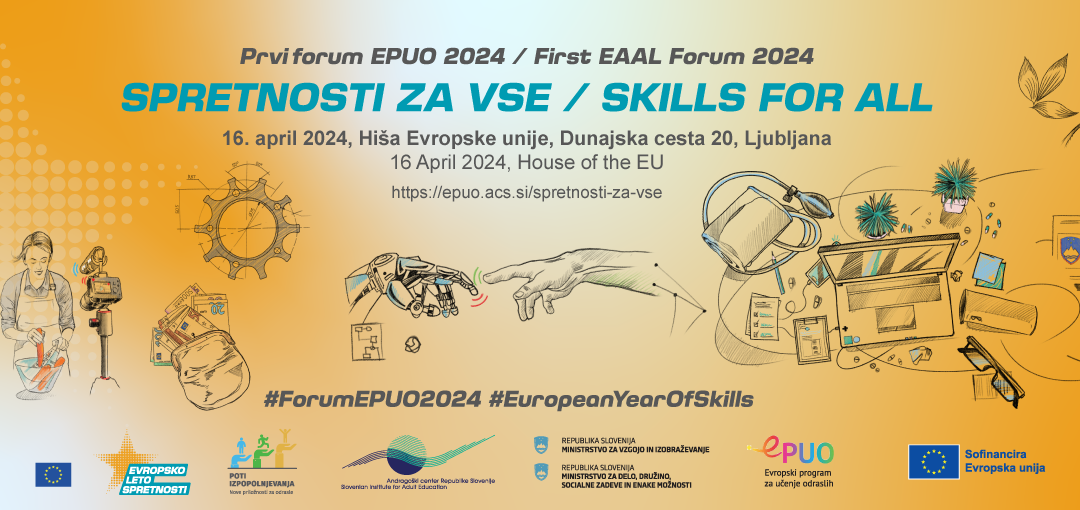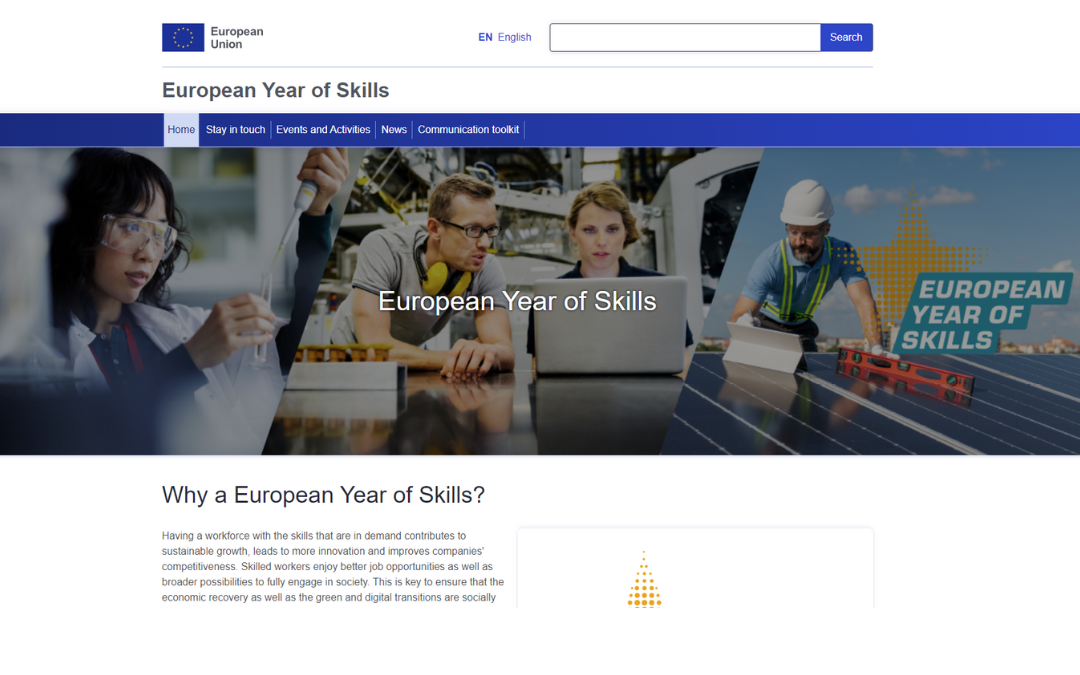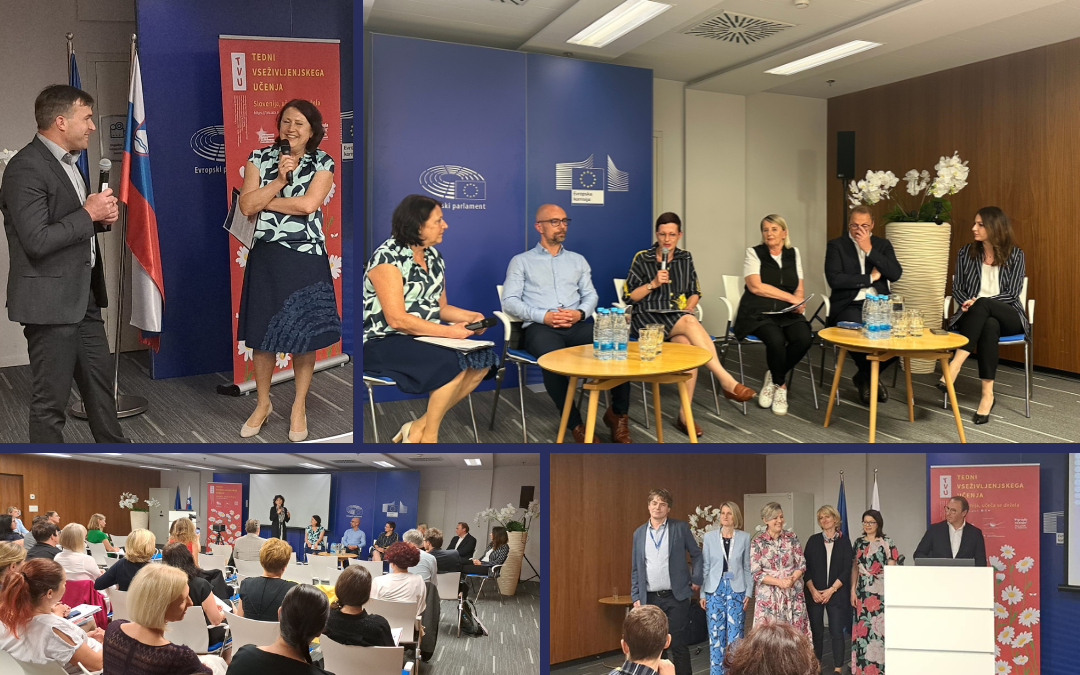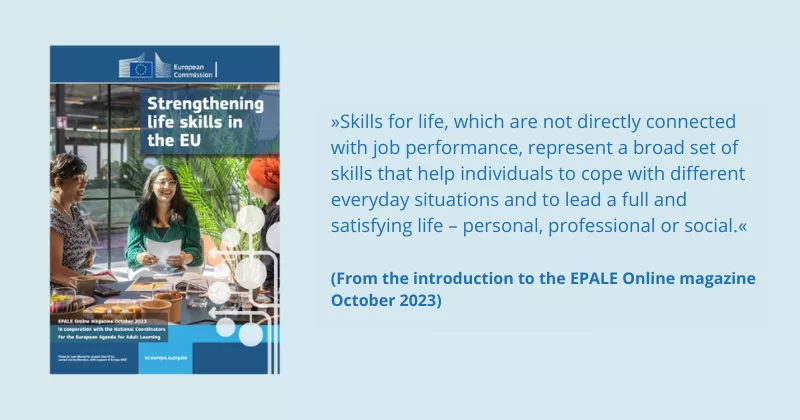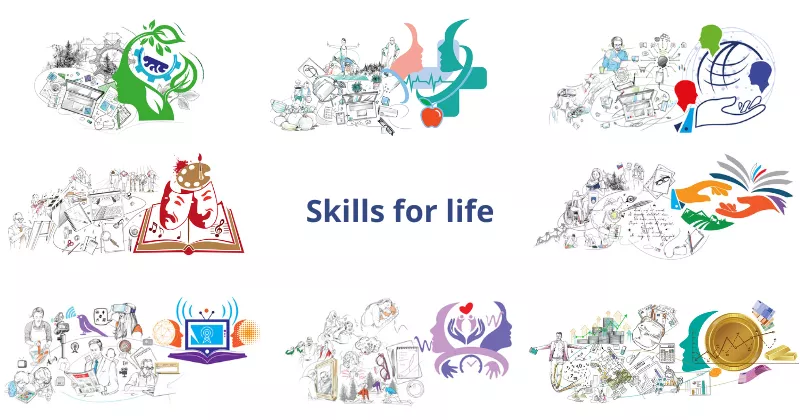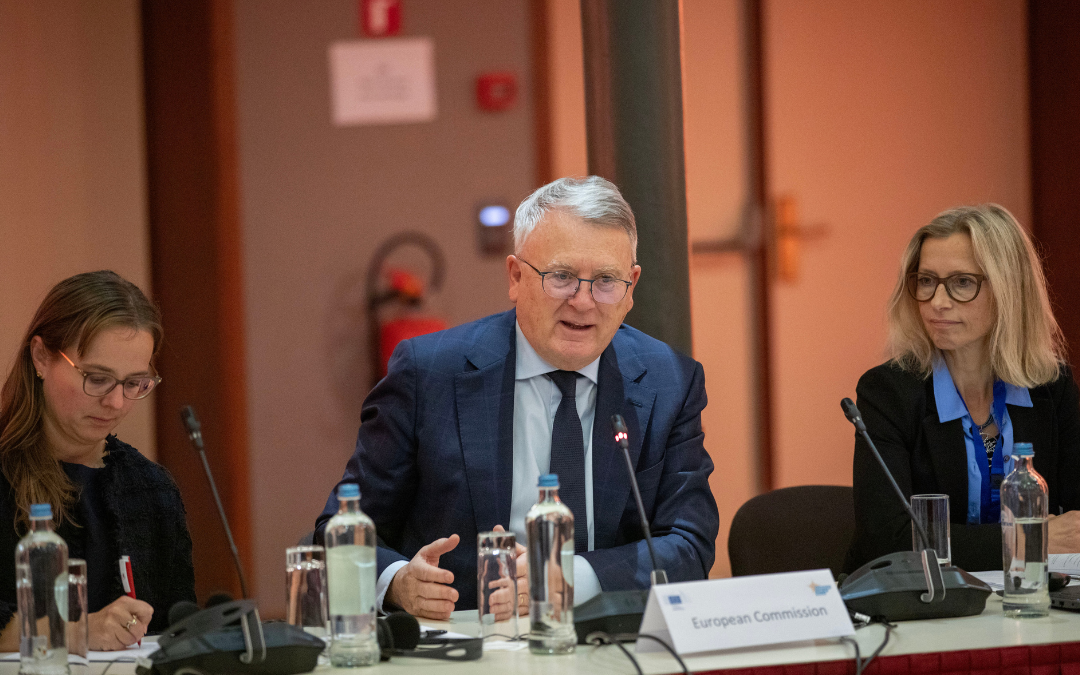Nevertheless, EYS activities are still lively!
Until 8 May 2024, the EU initiative encourages us to prioritise skills, contributing not only to recovery but also to the flourishing of society and the economy in the Member States. In Slovenia, under the leadership of the Ministry of Labour, Family, Social Affairs and Equal Opportunities, we responded to Ursula von der Leyen’s call alongside the enthusiastic team at the Directorate-General for Employment, Social Affairs and Inclusion of the European Commission, who is leading the ELS campaign. As the EYS national coordinator, I, the author of this article, attended meetings with EYS representatives from all participating countries, most recently on 20 February this year. In the initial meetings, the focus was on receiving guidance from the European Commission on how to structure the campaign and the support they could provide with content and communication tools. Later on, they became increasingly interested in what we are doing at the national and local levels. It’s more than evident that they recognised and acknowledged the importance of connecting with the practices and stories of learners.
In addition to the official European EYS website, which informs about events throughout Europe and invites us to register our activities, we have launched a Slovenian EYS website and tailored it to our circumstances. We collaborated with various stakeholders from the education and employment sectors, as well as other areas. The EYS is, after all, a platform where these stakeholders (can) meet and exchange their views. In addition to the narrower and broader non-formal working group, we established a formalised EYS project working group this year with the appointment of the Ministry of Labour, Family, Social Affairs and Equal Opportunities. It is designed to be cross-sectoral and will continue to address skills issues even after the mentioned EYS term expires.
Events bring people together, and potential and goodwill for collaboration emerge – but then what?
Words can convey much, but actions often lag. This dilemma struck me as I reviewed the draft video about last year’s Adult Education Colloquium, dedicated to the launch of the EYS in Slovenia. This video was produced for the first EAAL Forum of the year, titled Skills for All. The event was organised on 16 April at the House of the EU in Ljubljana and it served as a follow-up to last year’s launch. Thereby, we strengthened the brand of the EAAL Forums on the future of adult education (2021) and those on skills for life (2022-2023). The third dimension of the 2024 forum concerns a new project funded by ESF, called Awareness-raising for Lifelong Learning. It was presented to a broad audience for the first time. The event was recorded, and the recordings are available on the website. Speakers discussed, among other things, how to anticipate changes and needs in the labour market, how to identify which skills we have, and which are lacking, what policy measures can support us and how to raise awareness on th fact that lifelong learning is the right path because it brings power and joy.
Skills are also being highlighted elsewhere in Europe
In February, we attended with great interest the Skills for Life Cluster: Showcasing Past Achievements webinar. Representatives from Belgium, Latvia, Germany, the Netherlands, Slovakia and Serbia presented their efforts and exciting projects. We were also invited to read the EPALE blog, which provides direct access to the joint publication Strengthening Life Skills in the EU. In its introduction, they outlined the purpose of their collaboration.
Among the practical examples mentioned is our Learning Parade, and the contribution is linked to the blog on Learning Communities, published on EPALE. The mosaic of colourful contributions calls directly and indirectly for a holistic approach to skills development and special care for vulnerable groups.
Skills first, only then everything else?!
The significant attention garnered by the issue of skills through EYS also carries the risk of narrow perspectives. We have already highlighted this in one of our contributions referring to the LinkedIn Economic Graph: Skills-First: Reimagining the Labour Market and Breaking Down Barriers.
It seems that the European Commission, Directorate-General for Employment mentioned above, is a strong advocate of the skills-first approach. Their EYS team organised a professional meeting in February to discuss the benefits of this approach to the economy. The message conveyed, at first glance, is that education, in today’s turbulent times, may not be as crucial as previously thought. What is more relevant are the skills (for work) that can be acquired through short, highly targeted training sessions. These are non-formal or informal training sessions, primarily pertaining to skills gained through experiential learning in the workplace. Is formal education losing its primacy in a time of significant challenges?
It’s not just about neglecting knowledge, values, or attitudes towards learning that is worrisome. There is also pertains to the narrow focus of learning and education for work. Therefore, in my opinion, it is (again?) time for all of us, who perceive and act more broadly, to recall for ourselves and others all four of Delors’ pillars of learning and to add three further dimensions/purposes of learning: the acquisition of knowledge (and thus understanding of the structure of the world), personal development and living together.
Zvonka Pangerc Pahernik, MSc, (zvonka.pangerc@acs.si), SIAE

